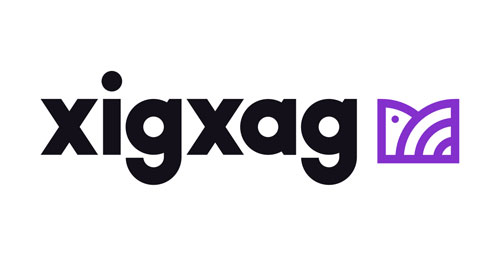The ‘App Tax’ and Investment Issue
xigxag’s opportunity for investment is directly affected by the app transaction tax. This is stifling growth and inhibiting start-ups’ international growth, and is an obvious example of Apple and Google exploiting their dominant market position. If the playing field isn’t levelled for UK-grown businesses, the UK will be dependent on exports.
Fairbrother says businesses can’t attract investment when 30% of revenue goes straight to Apple or Google. Customers are being underserved by this, and developers are facing an ultimatum between absorbing the cost themselves or passing this onto consumers. What the industry needs is simple purchasing experiences that enable competitive consumer offerings. Many businesses would rather move people to the web for payments, but this interrupts the seamless customer experience small businesses want to create for users.
“The rules of the game in investing have changed because of market dynamics.” It’s hard to raise money as it is- but having 15-30% tax on every purchase just because developers want to offer customers a better experience is an anti-competitive practice. Small businesses are being held back by fear, and when they look for alternative methods of investment, like revenue-based finance, they are blocked because of App Store T&Cs. For this type of investment, the ‘investor’ must look at revenue, which can be seen from the App Store Accounts, but Apple’s T&Cs restrict this, so much so that you can be kicked off the App Store entirely, meaning no revenue and businesses can be destroyed overnight.
The Payments Problem
xigxag and other developers are waiting 60-90 days before being paid for their work. If they make a sale on the 1st of January- they receive the draft form by 1st February, but xigxag doesn’t receive payment until following month. Alternative payment methods such as Stripe have payment times 7 days. Fairbrother says Apple could do a lot more if they really wanted to be competitive.
xigxag started a transactional website and is having to push customers towards this to avoid App Store payments. This, however, doesn’t create a seamless experience for customers. xigxag argues that there is no need for app stores when you can download everything online, but that it is just another way for the monopolists to control the ecosystem. In-app payments are purely for the convenience of the customer.
The issue with this is that App Store payments aren’t fit-for-purpose for a-la-carte payments, it’s all set up for subscription models. Fairbrother notes that the payment signals aren’t well developed, and haven’t really been updated for years (compared to Stripe). It’s a monopolist position that shows Apple’s belligerence when it comes to innovation.
In xigxag’s experience, 1 in every 100 payments fail on the App Store. This is bad enough, and is impacting the overall customer experience, however, developers can’t see where payments are going wrong because Apple controls the information and visibility they have into the App Store. Developers can’t do anything to fix this, or support customers through this meaning customers become disgruntled but Apple doesn’t lose out.
Fundamentally, it isn’t Apple and Google’s place to put a tax on small businesses.
A Broken Marketplace
For most purchases made within an app store, or through in-app payments, Apple and Google take as much as 30% of the purchase price. No other transaction fee — in any industry — comes close.
This app tax cuts deeply into consumer purchasing power and stifles developer revenue. This is especially unfair when this tax is imposed on apps competing directly with similar apps sold by Apple. This tax puts businesses at a distinct competitive disadvantage and thus drives up the prices for consumers.
Developers note that a 15-30% fee in the Apple App Store represents an enormous portion of their revenue, in many cases an untenably large one. They argue that when competing with one of Apple’s apps — like Music, Mail, or Books — the situation becomes even more complex.
Developers and creators want Apple to open its App Store platform and Google to open its Google Play platform so that any company can build software on their own terms and release it to people freely. Users should also have the ability to install software, for free, from anywhere so that there is an even playing field and genuine competition in the realm of software development and distribution.
A fair and balanced marketplace would mean that every software supplier and every component vendor can compete for business on iOS or Android without being constrained by terms and limitations that have been crafted by the company that just happened to program the operating system of a user’s device. Just as every aspect of the web economy is open to competition, every part of the app economy needs to be available to competition.

